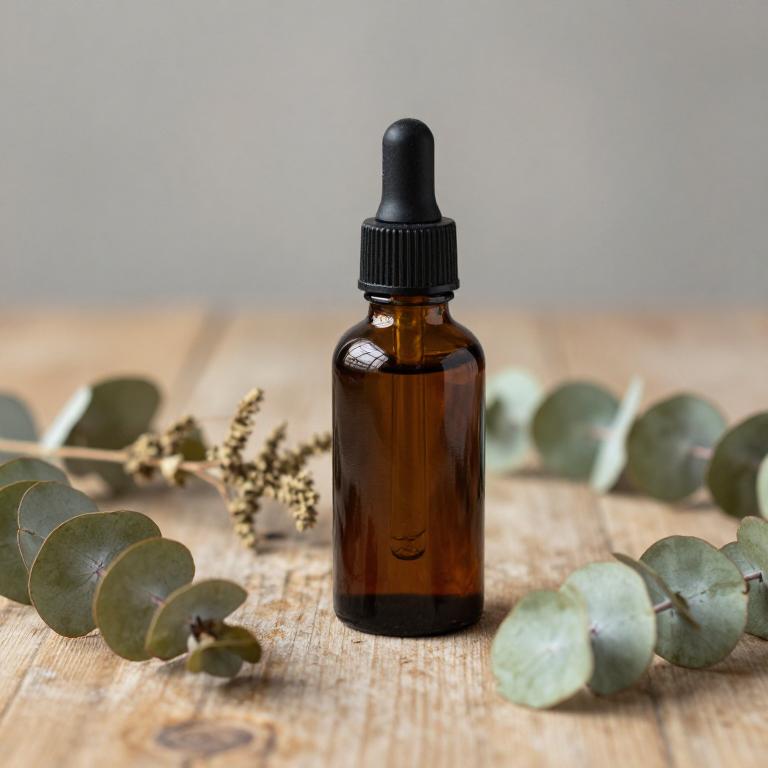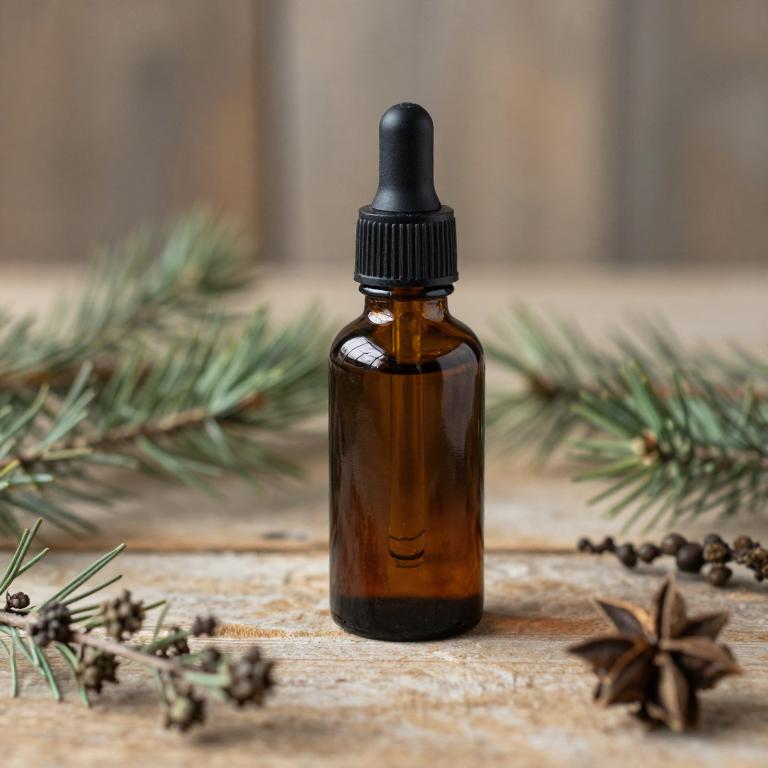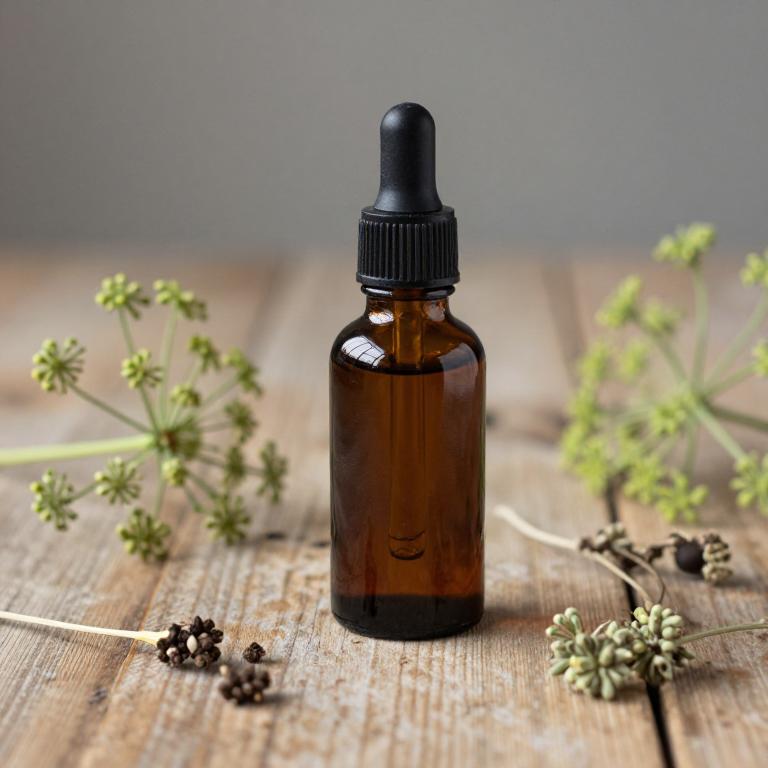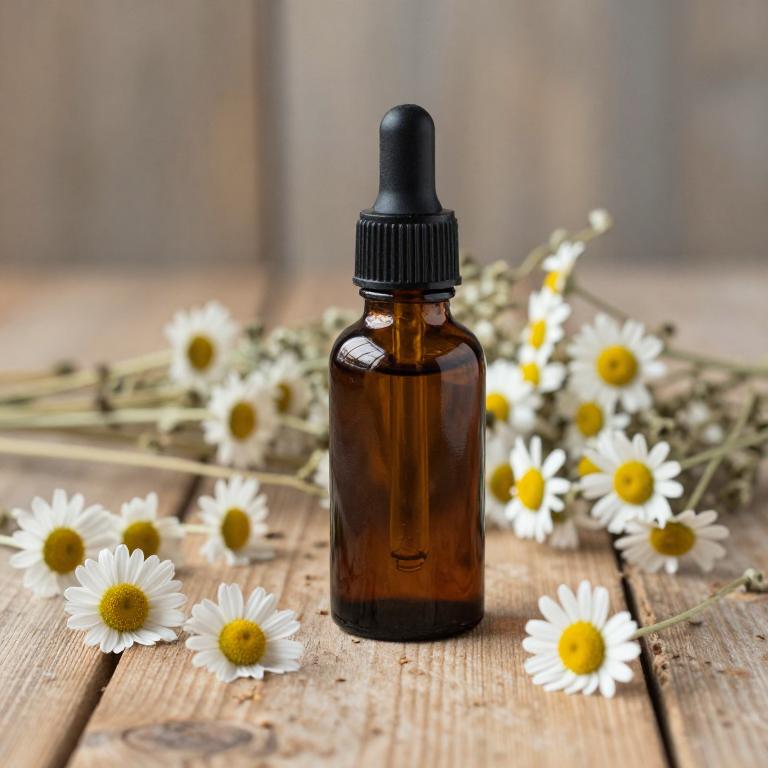10 Best Herbal Tinctures For Phlegm

Herbal tinctures for phlegm are concentrated liquid preparations made by soaking herbs in alcohol or vinegar to extract their medicinal properties.
These tinctures are often used to help loosen mucus, reduce inflammation in the respiratory tract, and promote easier expectoration. Common herbs used in such tinctures include eucalyptus, thyme, ginger, and licorice root, each offering unique therapeutic benefits. They are typically taken orally, either directly or diluted in water, and can be used as a complementary therapy alongside conventional treatments.
While generally safe, it is advisable to consult a healthcare professional before using herbal tinctures, especially for prolonged periods or in combination with other medications.
Table of Contents
- 1. Eucalyptus (Eucalyptus globulus)
- 2. Thyme (Thymus vulgaris)
- 3. Licorice (Glycyrrhiza glabra)
- 4. Scots pine (Pinus sylvestris)
- 5. Ginger (Zingiber officinale)
- 6. Peppermint (Mentha piperita)
- 7. Fennel (Foeniculum vulgare)
- 8. Salvia (Salvia officinalis)
- 9. Anise (Pimpinella anisum)
- 10. Chamomile (Matricaria chamomilla)
1. Eucalyptus (Eucalyptus globulus)

Eucalyptus globulus, commonly known as Australian eucalyptus, is widely used in herbal tinctures to help alleviate symptoms related to respiratory congestion and phlegm.
The active compounds in eucalyptus globulus, such as eucalyptol and cineole, possess antiseptic, anti-inflammatory, and expectorant properties that aid in loosening and expelling mucus from the respiratory tract. When formulated into a tincture, it can be used as a natural remedy to reduce the thickness of phlegm and ease breathing in individuals suffering from colds, bronchitis, or other respiratory conditions. It is often combined with other herbs like thyme or pine to enhance its effectiveness.
However, it is important to consult a healthcare professional before use, especially for those with allergies or chronic respiratory issues.
2. Thyme (Thymus vulgaris)

Thymus vulgaris, commonly known as thyme, is a popular herb used in herbal tinctures for its potent expectorant properties that help to loosen and expel phlegm from the respiratory system.
The essential oils in thyme, particularly thymol, act as natural antimicrobial agents, helping to combat respiratory infections that contribute to excessive mucus production. When prepared as a tincture, thyme is often diluted in alcohol to create a concentrated form that can be taken orally to support respiratory health. It is traditionally used in home remedies for conditions such as bronchitis, coughs, and sinus congestion, where phlegm removal is beneficial.
However, it is important to consult with a healthcare provider before using thyme tinctures, especially for individuals with allergies or those taking other medications.
3. Licorice (Glycyrrhiza glabra)

Glycyrrhiza glabra, commonly known as licorice root, has been traditionally used in herbal medicine for its expectorant properties, making it a popular component in tinctures aimed at alleviating phlegm-related respiratory conditions.
The active compounds in licorice root, such as glycyrrhizin and flavonoids, help to loosen mucus and promote its expulsion from the respiratory tract, thereby easing congestion and coughing. When prepared as a tincture, glycyrrhiza glabra provides a concentrated form of these beneficial compounds, allowing for more efficient absorption and faster relief. However, prolonged use of licorice root tinctures can lead to side effects such as hypertension and potassium loss due to its effects on the adrenal glands, so it should be used under the guidance of a healthcare professional.
Despite these considerations, licorice root tinctures remain a valued remedy in both traditional and complementary medicine for managing excess phlegm and supporting respiratory health.
4. Scots pine (Pinus sylvestris)

Pinus sylvestris, commonly known as the Scots pine, has been traditionally used in herbal medicine for its respiratory benefits, particularly in the treatment of phlegm-related conditions.
The essential oil and resin of the Scots pine are often used to prepare tinctures that help to loosen mucus and reduce congestion in the airways. These tinctures are believed to have expectorant properties, aiding in the expulsion of excess phlegm from the lungs. The active compounds, such as terpenes and phenolic substances, contribute to its anti-inflammatory and antimicrobial effects.
When used under proper guidance, Pinus sylvestris tinctures can be a valuable complementary therapy for managing respiratory symptoms associated with excess phlegm.
5. Ginger (Zingiber officinale)

Zingiber officinale, commonly known as ginger, has been traditionally used in herbal medicine for its expectorant properties, making it a popular ingredient in tinctures aimed at reducing phlegm.
These tinctures work by stimulating the respiratory tract and helping to loosen mucus, thereby facilitating its removal from the airways. The active compounds in ginger, such as gingerol and shogaol, are believed to have anti-inflammatory and mucolytic effects that support respiratory health. When used as a tincture, ginger is often combined with other herbs like eucalyptus or thyme to enhance its effectiveness in treating coughs and congestion.
However, it is important to consult a healthcare provider before using ginger tinctures, especially for individuals with underlying health conditions or those taking medications.
6. Peppermint (Mentha piperita)

Mentha piperita, commonly known as peppermint, is often used in herbal tinctures to help alleviate symptoms associated with excess phlegm.
The active compounds in peppermint, such as menthol and menthone, possess expectorant properties that can help loosen mucus in the respiratory tract. These tinctures are typically prepared by steeping fresh or dried peppermint leaves in alcohol, creating a potent and concentrated form of the herb. When used as a complementary therapy, peppermint tinctures may help reduce congestion and ease breathing in individuals suffering from colds, bronchitis, or other respiratory conditions.
However, it is important to consult with a healthcare provider before using peppermint tinctures, especially for those with asthma or sensitive respiratory systems.
7. Fennel (Foeniculum vulgare)

Foeniculum vulgare, commonly known as fennel, has been traditionally used in herbal medicine to support respiratory health, particularly in the management of phlegm.
Fennel tinctures are often prepared using the dried seeds of the plant, which are rich in volatile oils such as anethole, known for their expectorant and anti-inflammatory properties. These tinctures are believed to help loosen mucus in the airways, making it easier to expel phlegm and alleviate symptoms of congestion. They are typically used in small doses, either as a direct tincture or diluted in water, to avoid potential irritation.
While fennel tinctures may offer natural relief for respiratory discomfort, they should be used under the guidance of a qualified herbalist or healthcare provider, especially for those with existing medical conditions or who are taking other medications.
8. Salvia (Salvia officinalis)

Salvia officinalis, commonly known as sage, has been traditionally used in herbal medicine for its potential respiratory benefits, including its use in tinctures to help alleviate symptoms associated with phlegm.
Sage tinctures are often prepared by soaking the dried leaves in alcohol, allowing the active compounds such as flavonoids and essential oils to be extracted. These compounds are believed to have antimicrobial and anti-inflammatory properties that may help reduce mucus production and ease congestion. Some studies suggest that sage may support the body's natural ability to clear respiratory passages, making it a popular choice in natural remedies for coughs and excess phlegm.
However, it is important to consult with a healthcare professional before using sage tinctures, especially for prolonged periods or in combination with other medications.
9. Anise (Pimpinella anisum)

Pimpinella anisum, commonly known as anise, is often used in herbal tinctures to help alleviate symptoms associated with respiratory conditions, including the reduction of phlegm.
The essential oils in anise, particularly anethol, possess expectorant properties that can help loosen and expel mucus from the respiratory tract. These tinctures are typically prepared by soaking the dried seeds in alcohol, allowing the active compounds to be extracted for medicinal use. Herbal tinctures made from anise are often used as natural remedies for coughs, bronchitis, and other respiratory ailments where excess phlegm is a concern.
While generally considered safe when used in recommended doses, it is advisable to consult a healthcare professional before using anise tinctures, especially for prolonged periods or in combination with other medications.
10. Chamomile (Matricaria chamomilla)

Matricaria chamomilla, commonly known as German chamomile, is often used in herbal tinctures to support respiratory health, particularly in the management of phlegm.
These tinctures are typically prepared by extracting the essential oils and active compounds from the dried flowers of the plant, resulting in a potent and concentrated form of the herb. Chamomile tinctures are believed to have anti-inflammatory and mucolytic properties, which may help to reduce mucus production and ease the expectoration of phlegm. They are often used as a complementary therapy alongside conventional treatments for conditions like bronchitis or sinusitis.
However, it is important to consult with a healthcare professional before using chamomile tinctures, especially for individuals with allergies or those taking other medications.